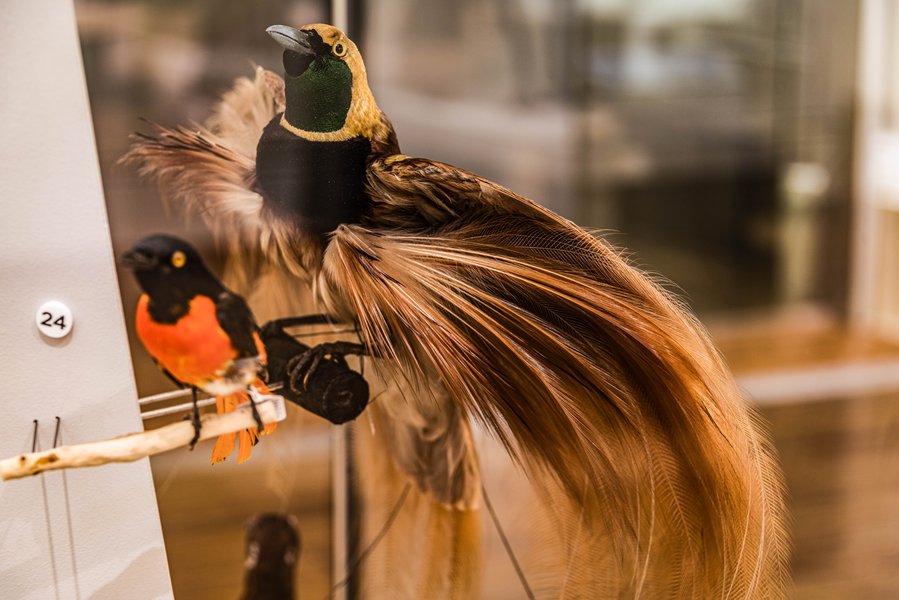Centered in a tall, rectangular glass case is a white, vertical angular structure on which 21 birds of various species are displayed in Wild Planet. Each bird is perched on its own branch connected to the white structure.
This collection includes Birds of Paradise that are found mostly on the east coast of Australia and in Papua New Guinea.
It's easy to see why early explorers mistook these striking birds for mythical creatures, as the males have evolved vivid and flamboyant feathers to attract females through dances, poses and other rituals which sometimes last for hours! Their display feathers are highly evolved versions of a basic feather, sometimes having fluffy plumes, thin ribbons or stiff wires.
The Raggiana Bird of Paradise adult male has a yellow crown and an iridescent green throat separated from the breast by a yellow border. There is also a male Blue Bird of Paradise, which has a black head and mantle, a broken white eye ring, and blue wings with rusty amber flank plumes above and blue below. During courtship the male lowers himself backwards on his perch until he hangs upside down with wings closed and flank feathers spread, while expanding and swaying them rhythmically. That's enough to get anyone's attention!
A surprising fact about birds is that in Australia they collide with aircrafts several times a day, not only costing the aviation industry millions of dollars annually but in worst case scenarios, causing plane crashes.
The Australian Centre for Wildlife Genomics (ACWG) help airports manage these risks by collecting DNA from the from the aviation airstrike samples and comparing it to our reference DNA to identify the species. This helps airports to incorporate the data into their safety practices, improving air travel for all.



